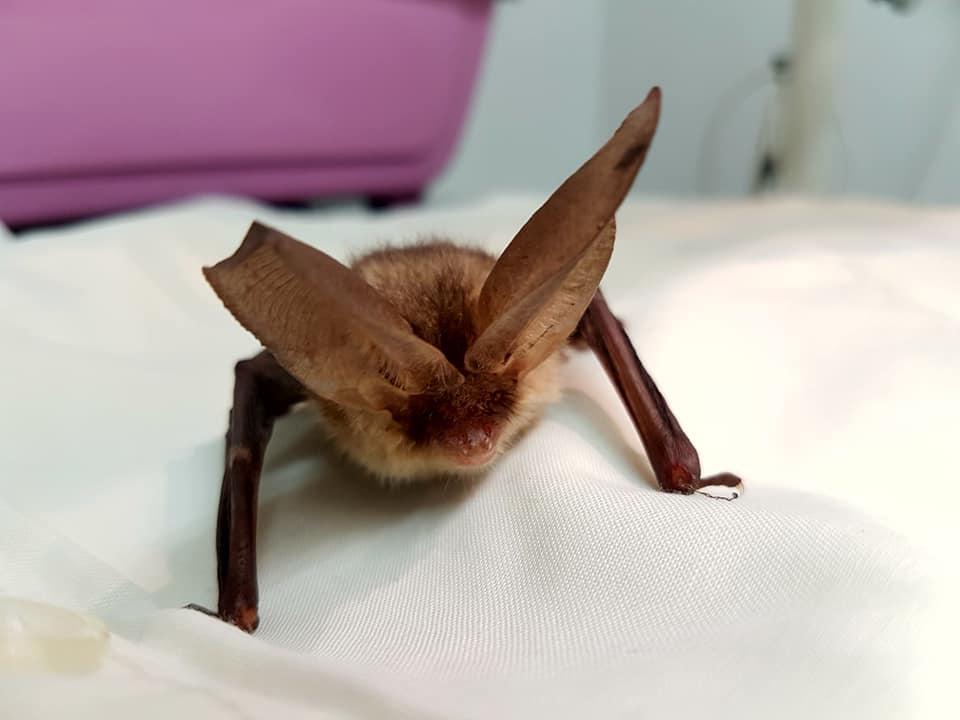
East Sussex WRAS works closely with the Sussex Bat Group and undertakes rescues following their guidance and advice. Bats are generally transported to them for rehabilitation and release unless only minimal care is required.
A bat needs help, and should not be left or released without advice, if:
If you find a bat in any of these situations, please put some gloves on and contain it using the following advice. Please don’t release the bat without further advice. A bat that isn’t fit for release, or that is released in unsuitable conditions, is unlikely to survive.
However, a bat seen in a loft, basement or outbuilding, or wedged into a crevice, may simply be roosting there. Please call the National Bat Helpline so we can help you evaluate the situation.
Do not touch a bat with your bare hands!
If you find an injured or grounded bat, please follow these instructions:
Sometimes, bats might accidentally fly through open windows. If a window is left wide open, they usually manage to find their way out on their own once it’s dark. However, if the window proves to be challenging for the bat to navigate and exit, it’s best to reach out to bat rescuers for help.
Every year, numerous bats are discovered stuck to adhesive fly papers. These bats are drawn to the insects caught on the paper, leading to their own entrapment. Removing them from the sticky surface is challenging, so it is crucial to promptly seek assistance and guidance from a certified bat worker. Refrain from trying to handle or release these bats on your own.
Bats, a species usually not associated with conflicts with fishermen, surprisingly get caught up in fly fishing activities. It’s not just fish that are hooked! Some bats chase after the fishing flies being cast, while others attempt to catch fishing flies hanging from rods and lines left against walls and posts. Moreover, discarded flies caught in branches pose a potential danger for passing bats. To prevent such situations, those overseeing fishing lakes can mitigate risks by trimming vegetation where fishing flies might get entangled.
Sussex Bat Group: https://www.sussexbatgroup.org.uk/Home
Bat Conservation Trust: https://www.bats.org.uk


